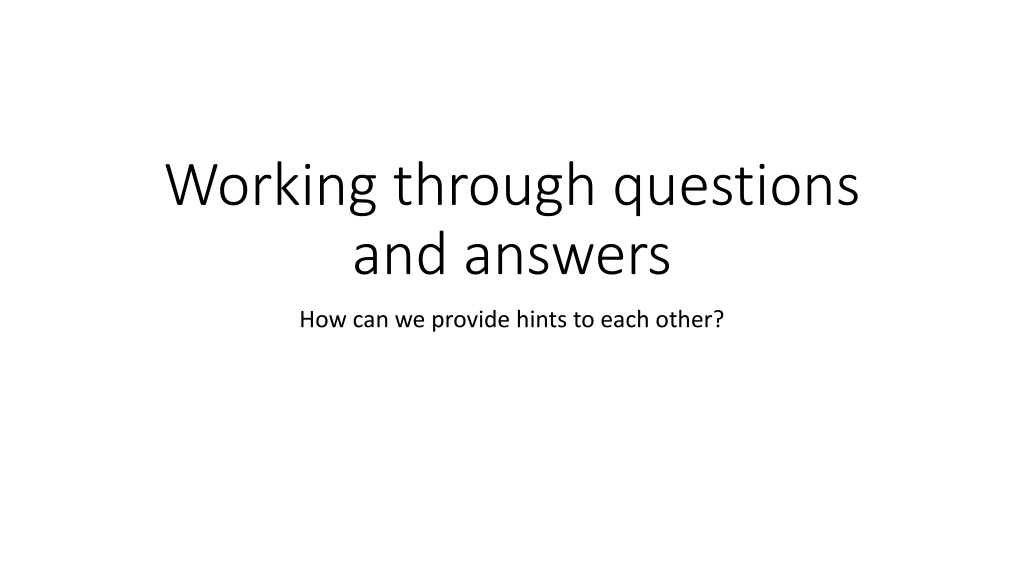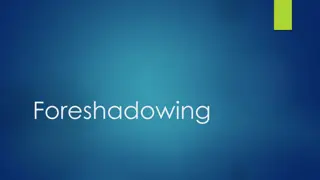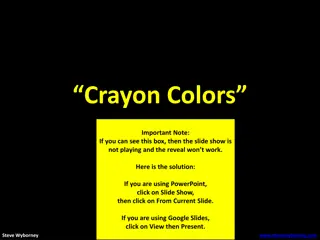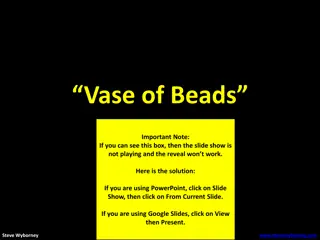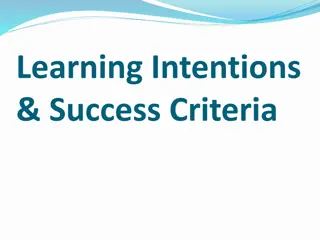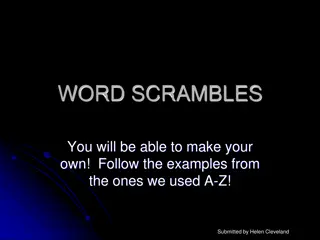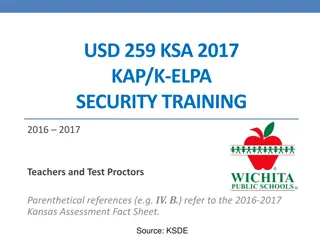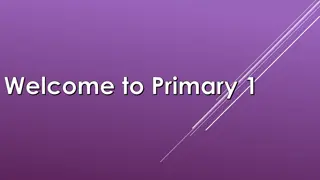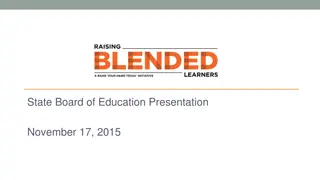Providing Hints for Better Learning
Learn how to effectively provide hints to aid in answering questions and understanding passages. Follow steps to read the questions, check for hints, and verify answers. Utilize images and prompts for guidance in improving comprehension and critical thinking skills.
Download Presentation

Please find below an Image/Link to download the presentation.
The content on the website is provided AS IS for your information and personal use only. It may not be sold, licensed, or shared on other websites without obtaining consent from the author.If you encounter any issues during the download, it is possible that the publisher has removed the file from their server.
You are allowed to download the files provided on this website for personal or commercial use, subject to the condition that they are used lawfully. All files are the property of their respective owners.
The content on the website is provided AS IS for your information and personal use only. It may not be sold, licensed, or shared on other websites without obtaining consent from the author.
E N D
Presentation Transcript
Working through questions and answers How can we provide hints to each other?
Steps after reading the passage: 1. Read the question do you know the answer? 2. Check out the hint/return to the passage. Try your answer again; do you still think you selected the correct option? Revise if you need to. 3. Check your answer.
STEP 2: Check for hints; does your answer still make sense? HINT: Think about how the landscape houses and roads are described; they are linked. Then, since the question asks about CONTRASTS, how are the Players homes and cares different from those?
Did you record your answer? Now go to the next slide to check it.
STEP 3: Check your answer. No---those words mean the same; prompt asks for contrasts Yes! The houses/cars are new, shiny and misplaced amidst the old town No---size is never indicated No---they may seem grand, but the passage does not mention any hint of whether people appreciate one over the other
Try the questions 2, 3, and 4: Try to choose an answer Look at hints and revise answer if needed Check answer/look at explanations
HINT: Think about the kind of laughing they do; why does it matter they agree with each other?
Did you record your answer? Now go to the next slide to check it.
A. Yes! They try to break the tension and reassure each other, even though they know they are in trouble, which the start of the next sentence (9) indicates. Additionally, look at the parts in red; things aren t going well. B. The director isn t mentioned; this is about how the actors treat each other. C. No outside observers are mentioned. D. There is NOT plenty of time so the laughter and agreement aren t realistic.
(10): Long after the time had come for what the director called really getting this thing off the ground: really making it happen, it remained a static,shapeless, inhumanly heavy weight; time and time again they read the promise of failure in each other s eyes, in the apologetic nods and smiles of their parting and the spastic haste with which they broke for their cars and drove home to whatever older, less explicit promises of failure might lie in wait for them there. HINT: Look at that diction (word choice) in the sentence noted. What is this rehearsal like? How do the people leave?
Did you record your answer? Now go to the next slide to check it.
(10): Long after the time had come for what the director called really getting this thing off the ground: really making it happen, it remained a static, shapeless, inhumanly heavy weight; time and time again they read the promise of failure in each other s eyes, in the apologetic nods and smiles of their parting and the spastic haste with which they broke for their cars and drove home to whatever older, less explicit promises of failure might lie in wait for them there. A. no word choice indicates frustration at their situation, not resentment at the director B. No-it s not there is reluctance; there is frustration C. There is self-awareness that they themselves aren t being successful D. Yes! That diction (word choice) speaks of a problematic production with little hope of success
HINT: How does this evening of the performance compare/contrast to the previous rehearsal?
Did you record your answer? Now go to the next slide to check it.
A. nowe dont know what time of day it was during rehearsal B. No-the passage hints that doubling and redoubling rehearsals didn t seem to matter. C. The director is never mentioned. D. Yes! Look at the differences: UNFAMILIAR FEEL, and FIRST WARM EVENING and FORGOT TO BE AFRAID
